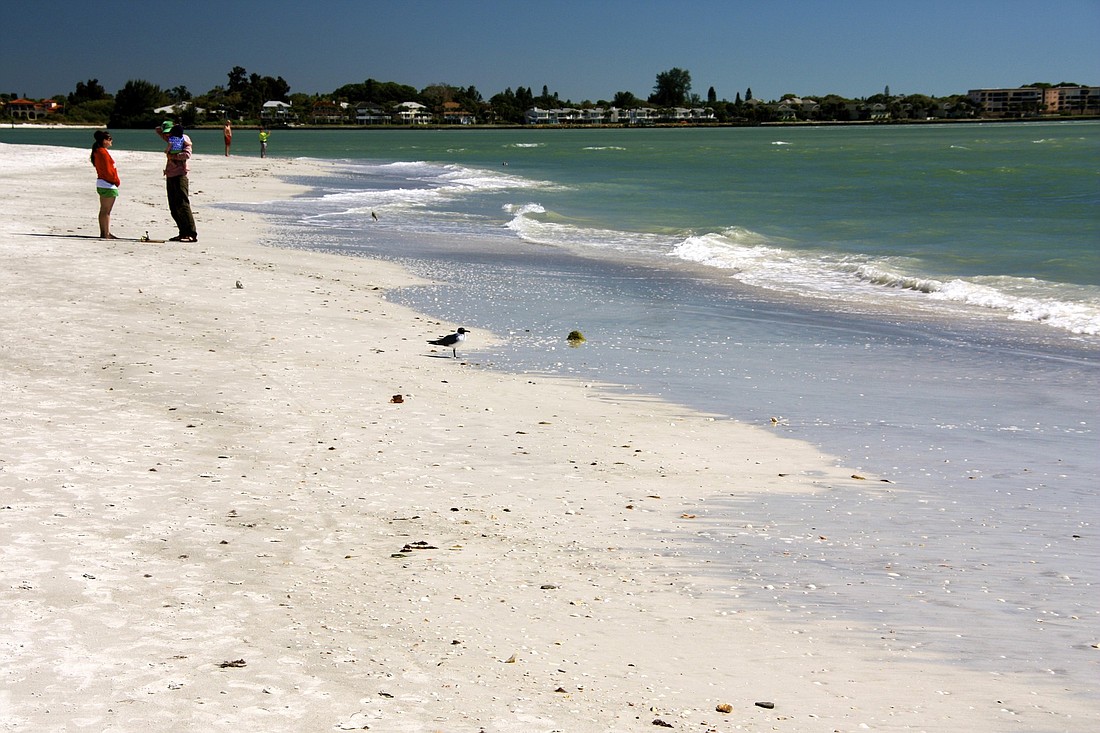- April 22, 2024
-
-
Loading

Loading

As Siesta Key and an area boating groups ratchet up their opposition to a proposed U.S. Army Corps of Engineers project to dredge Big Pass, representatives of the Corps dispute claims that they have overlooked the project’s potentially harmful consequences in a push to move it forward. They are also urging opponents to reserve judgment until all the data have been presented.
Representatives of the Army Corps were spurred to respond to their critics after they were publicly chastised for not attending a March 6 Tiger Bay debate, which pitted representatives of the city of Sarasota, who defended the $22.7 million project, against environmental activists and engineers who opposed it.
“The Corps has left the city standing at the altar,” said Jono Miller, an environmental activist who represented opposition to the dredge at the debate.
The Army Corps intended to send representatives to the debate, but pulled out five days beforehand. Army Corps representatives cited personal reasons and an incomplete environmental impact study, due in April, as their reasons for not attending the debate.
In a March 12 interview, one week after the debate, Army Corps of Engineers Project Manager Milan Mora — the project lead for the Big Pass dredge — pushed back against the notion that the Corps had abandoned the city to defend the project.
“The modeling will not be done until late April, so there's nothing new to talk about,” Mora said. “How can you oppose a project when the data is not even out for review?”
Critics of the Big Pass dredge include multiple Siesta Key business and neighborhood associations, including the Siesta Key Association, the Siesta Key Village Association and the Siesta Key Chamber of Commerce. The Sarasota Boaters’ Coalition also voted to officially oppose the dredge.
Opposition to the Army Corps’ plans is based on worries that a shrunken shoal would be less able to insulate Siesta beaches from storm surge during a hurricane or tropical storm. There are also worries that the dredge might inadvertently seal the pass off from boat traffic.
Mora claimed such concerns were not based on data, only rumors, adding that initial studies indicate the proposed dredge will not have any adverse effects on Siesta Key beaches or the navigability of Big Pass.
Mora said he was hesitant to publicly respond to criticisms about the dredge because he did not want to give the impression that the Army Corps was advocating for the project.
“This project is for the city of Sarasota; they are our sponsor,” Mora said. “People don't understand that we are just presenting the facts. We're not trying to force anything down anyone’s throat.”
Mora also pushed back against calls for an independent review of the Army’s plans, claiming independent consultants had already reviewed a 2005 Beach Inlet Management Plan (BIMP) that analyzed the current project’s components and guided the Army’s proposal.
In a joint meeting between the city of Sarasota and the County Commission last year, Rob Patten, the Sarasota County environmental services director at the time of the 2005 BIMP, publicly stated that Mora’s comments were inaccurate. Patten said the 2005 study was an evaluation of possible strategies to manage sand from area inlets and was never intended to be a specific project plan.
“It is disingenuous and misleading to suggest that the specific groin and dredging plan now being proposed has been vetted by the public and other professionals,” Patten later wrote in an email to Sarasota County commissioners.
Army Corps spokeswoman Susan Jackson denied the notion that the Corps was misleading the public or shielding its plans from further scrutiny.
“I understand the county or the city will peer-review this. Also the state will have to chime in, too,” Jackson said. “It’s not like we're forcing anything on anyone. We're here to present the facts.”
Mora argued some concerns about the potential environmental impact of the project were overblown. According to the Army Corps' plans, the proposed dredge would remove 1 million cubic yards of sand from the Big Pass Shoal, which is estimated to contain more than 30 million cubic yards of sand.
The size of the shoal is not a natural phenomenon, Mora also said, but likely the accumulated product of sand drifting off of Lido Beach, which has been renourished multiple times since the 1970s.
Mora did concede that some uncertainty remains in the project's environmental impacts, but the Army Corps was willing to adjust the scope of the project if data ultimately suggest it might harm the pass or nearby beaches. Mora cautioned against totally revamping the project, however, claiming such a move would set back the timeline for renourishing Lido Beach by 10 to 15 years.
“If there’s something here that they don't like about the project, we’ll go back and make the changes,” Mora said. “If there are chinks in our armor, we will address those accordingly.”
The Army Corps said it will publicly release its final environmental impact study sometime in April. The project will go before the Sarasota County Commission in May.
Contact Nolan Peterson at [email protected]